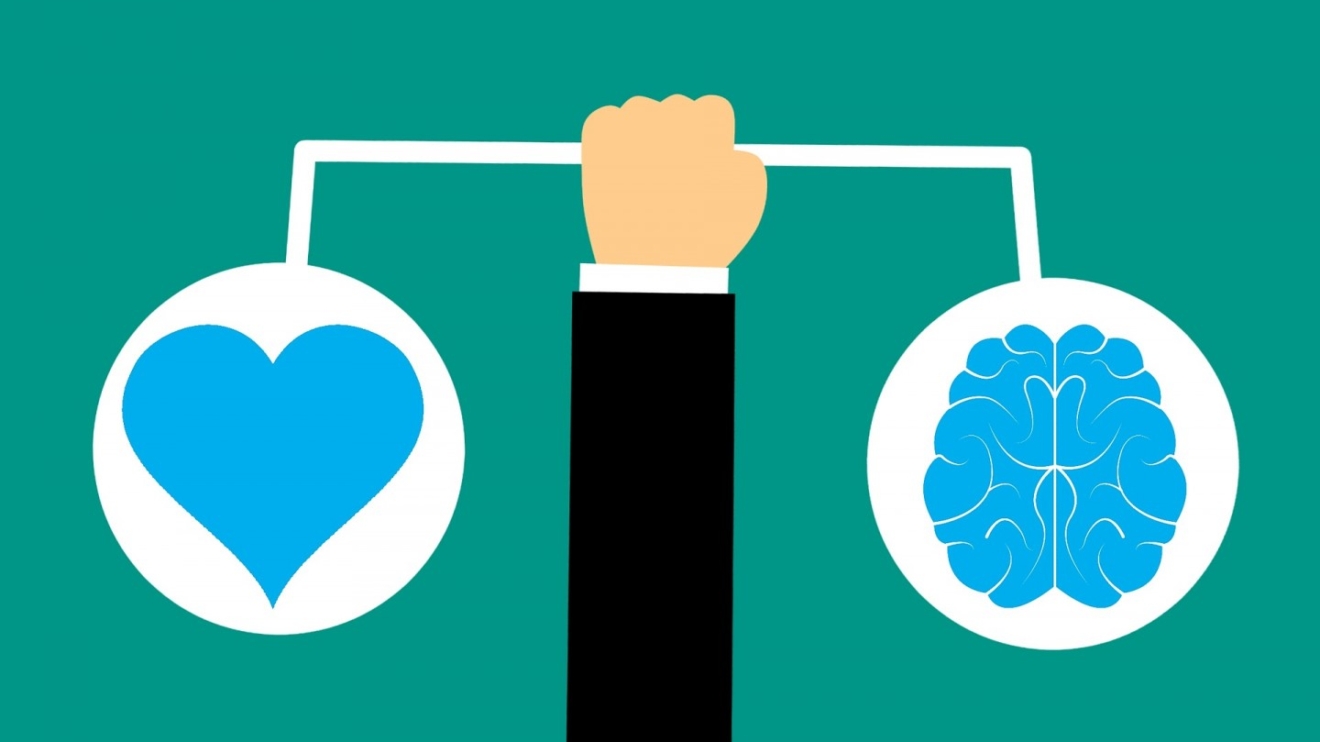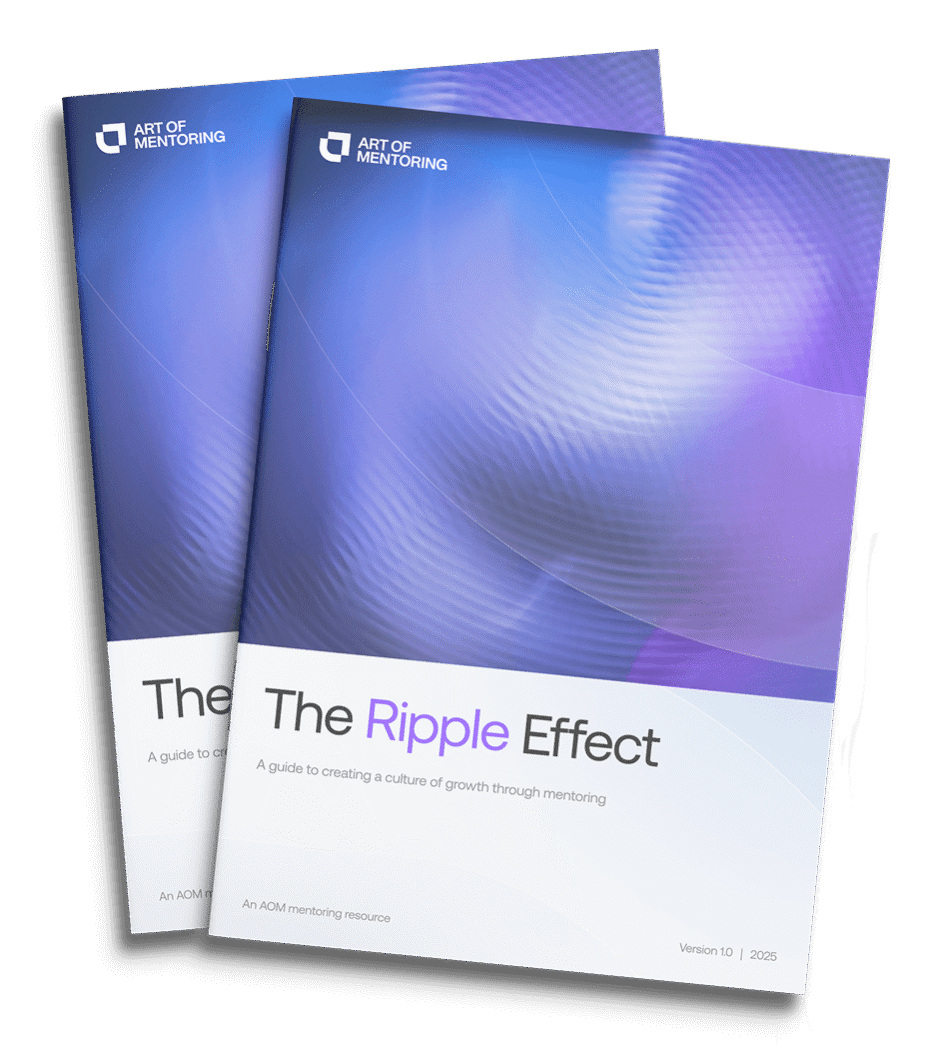Start building a culture of growth today.
Join the hundreds of organisations embedding mentoring and empowering their teams with the Art of Mentoring.
11 May, 2018 | 3 mins read

By Sonja Feil, Client Development Consultant & Sophie De Haan, Psychology Intern
The concept of Emotional Intelligence was devised by Peter Salovey and John D. Mayer, and popularised by the author Daniel Goleman in the early 1990s. The theory states that just as people have a wide range of intellectual abilities, they also have a wide range of measurable emotional skills that profoundly affect their thinking and actions.
There is a growing body of evidence around the importance Emotional Intelligence plays in success at work. Individuals can enjoy a successful career and better relationships by relying on their emotional intelligence.
Studies have shown that people with high levels of emotional intelligence have greater career success, foster stronger personal relations, have effective leadership skills and are healthier than those with low emotional intelligence (Cooper, 1997).
Emotional intelligence (EI) is how well a person understands and manages their emotions and the emotions of others and how they use this knowledge to manage relationships. Developing these skills is critical in the workplace, with strong emotional intelligence being linked to high performance. Emotional Intelligence assessments typically provide answers to questions such as:
For a mentor, emotional intelligence is important. It has been found that in mentors there is a positive relationship between emotional intelligence and the degree of confidence that a mentee has in them (Chun, Litzky, Sosik, Bechtold & Godshalk, 2010). In addition, there are some qualities that are useful for a mentor or coach to develop. For example, high empathy provides better career and psychological support mentoring functions (Chun et al., 2010).
Several characteristics, measured by Emotional Intelligence assessments such as The Trait Emotional Intelligence Questionnaire (TEIQue), are positively associated with giving suitable, emotional responses and performing different mentoring functions. Emotional intelligence also appears to be important in serving as a role model for mentoring (Chun et al., 2010).
A high EI is also valuable for mentees. Emotional intelligence is, in fact, positively related to the extent to which a mentee learns. This is then related to the job satisfaction and career attitude (Chun et al., 2010).
Rose Opengart and Laura Bierema’s 2016 article Emotionally Intelligent Mentoring: Reconceptualizing Effective Mentoring Relationships was a systematic review of existing literature to illustrate how EI affects the mentoring relationship and influences its effectiveness for both the mentor and protégé. They conclude that “it is essential to select a mentor who is high in EI and uses his or her emotional competence to maximize the potential of the mentoring relationship” (p252).
Cremona (2010) studied emotional responses of coaches, but her recommendations are equally relevant for mentors. She suggested that training for coaches should involve empathy, body awareness, and relationship building and connect emotions to engagement, motivation, resilience, leadership, and managing change. She advocates that management types need to “demystify their views about emotions . . . and expand and deepen their approach towards emotion . . . in the workplace” (p. 58).
Opengart and Bierema suggest that to get the most out of a mentor-mentee relationship, EI should be measured, discussed, and both parties develop self-awareness of their own EI. They argue that this may result in heightened learning, more successful mentoring relationships, improved retention, and enhanced HRD.
If you would like to find out more about Emotional Intelligence, or the TEIQue assessment, please contact John Leard of Thomas International on (02) 9042 1183 or johnl@thomasint.com.au.
References:
Akers, M & Porter, G. (2016). What is Emotional Intelligence (EQ)? Psych Central. Retrieved on March 20, 2018, from https://psychcentral.com/lib/what-is-emotional-intelligence-eq/
Chun, J., Litzky, B., Sosik, L., Bechtold, D. & Godshalk, V. (2010). Emotional Intelligence and Trust in Formal Mentoring Programs. Accessed on January 15, 2018, on file:///C:/Users/SUPPOR~1/AppData/Local/Temp/421.full.pdf
Cooper, R. (1997). Applying emotional intelligence in the workplace .Accessed on January 15, 2018, on http://go.galegroup.com/ps/anonymous?id=GALE%7CA20251750&sid=googleScholar&v=2.1&it=r&linkaccess=fulltext&issn=10559760&p=AONE&sw=w&authCount=1&isAnonymousEntry=true
Cremona, K. (2010). Coaching and emotions: An exploration of how coaches engage and think about emotion. Coaching: An International Journal of Theory, Research, and Practice, 3, 46-59.
Opengart, R. and Bierema, L. (2015). Emotionally Intelligent Mentoring Reconceptualizing Effective Mentoring Relationships. Human Resource Development Review, 14(3), pp.234-258.
Download our introductory guide ‘The Ripple Effect’ to mentoring and learn the secrets to unleashing hidden value in your organisation

Compiled by our mentoring experts, this guide will introduce you to the secrets of unleashing hidden value in your organisation.
Art of Mentoring CRM needs the contact information you provide to us to contact you about our products and services. You may unsubscribe from these communications at any time. For information on how to unsubscribe, as well as our privacy practices and commitment to protecting your privacy, please review our Privacy Policy.
"*" indicates required fields
Join the hundreds of organisations embedding mentoring and empowering their teams with the Art of Mentoring.

By subscribing, you agree to Art of Mentoring contacting you about our products and services. You may unsubscribe from this communicaiton at any time using the ‘unsubscribe’ link at the bottom of our emails. The Privacy Policy, located on our website outlines our commitment to protecting your privacy.
"*" indicates required fields